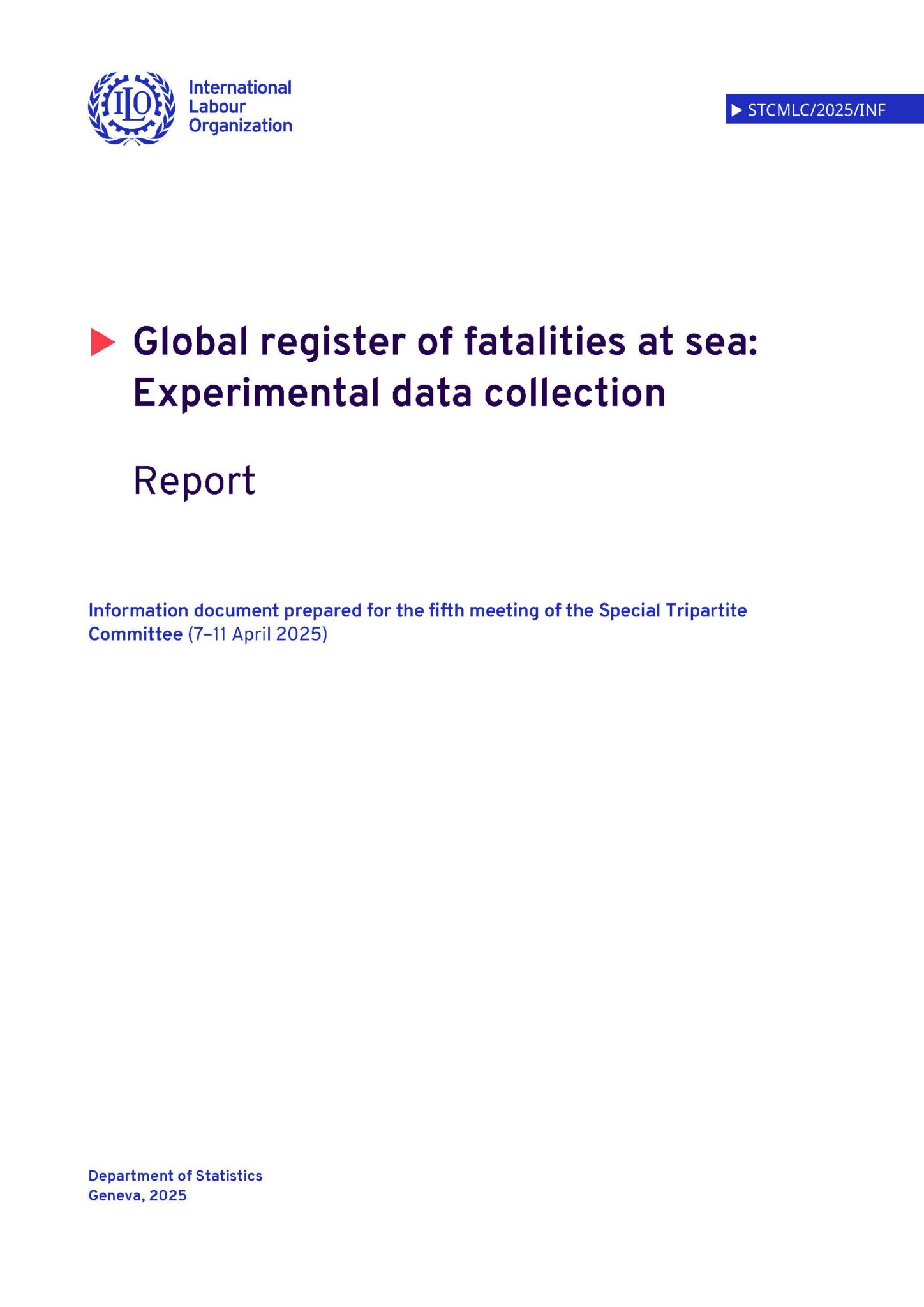
Statistics on sectoral employment
This topic page on sectoral employment provides access to statistical information including data, methods, publications and more.
Statistics on sectoral employment Read More »

This topic page on sectoral employment provides access to statistical information including data, methods, publications and more.
Statistics on sectoral employment Read More »
A first-ever global data collection on seafarer fatalities offers insight into the main causes of death at sea, revealing critical safety and health risks. With data from 51 countries, this analysis underscores the urgent need for stronger reporting systems and targeted safety measures under the Maritime Labour Convention, 2006.
New data reveals leading causes of seafarer deaths in 2023 Read More »

On World Food Safety Day, the ILO analyzes the work of subsistence foodstuff producers, as per improved international statistical standards.
Subsistence foodstuff producers: the importance of making their work visible Read More »

Information document prepared for the fifth meeting of the Special Tripartite Committee (7–11 April 2025)
Global register of fatalities at sea: Experimental data collection Read More »

The foundational resolution adopted in 2013 by the 19th International Conference of Labour Statisticians introduced a forms-of-work framework with five forms of work (own-use production work, employment, unpaid trainee work, volunteer work, and other work activities) and new measures of labour underutilization, greatly increasing the gender relevance and the analytical value of labour statistics. However, the full potential of these new standards is only fulfilled if countries implement them in their data collection activities via robust gender-sensitive methods and communicate effectively the results. This short paper summarizes the rationale and benefits the new standards, highlighting key methodological and operational issues pertaining to their implementation, with an emphasis on the standards’ impact in improving the gender relevance of work statistics. It also briefly discusses the role of effective communication and dissemination in fulfilling the potential of gender-relevant work statistics.

This case study highlights Türkiye’s use of national frameworks for leveraging administrative data to generate labour statistics on international migrants. It also contributes to revising the 2018 ICLS Guidelines.

The report offers a thorough analysis of international migrants’ participation in the global labour force. It addresses key challenges while providing regional estimates highlighting the diverse dynamics of labour migration.
ILO global estimates on international migrants in the labour force Read More »

The aviation sector has continuously evolved over the years, shaped by both long-term developments and short-term shocks. Data insights from the ILO suggest that the sector is characterized by ‘turbulence’ brought about by highly fluctuating levels and a shifting structure of employment, persistent gender imbalances, and other decent work challenges, all of which are linked to the cyclical and competitive nature of the industry.
Constant turbulence: employment in civil aviation Read More »